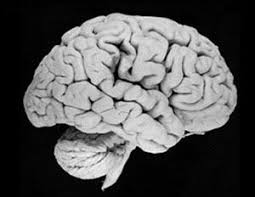Rehab Articles
With more states, countries, and government entities giving the go ahead for medical or even recreational marijuana use many questions have been raised about this drug that need to be answered. There is a well known and identified link between substance abuse and mental illness. Statistics show that people who have risk factors for schizophrenia and other psychotic forms of mental illness may be adversely affected by marijuana use, and this drug can even contribute to the development of psychosis in individuals who are already prone to certain types of mental disorders including schizophrenia. Mental health experts warn that marijuana use can mask or even aggravate the symptoms of mental illness and make an accurate diagnosis much harder to make. Using marijuana can cause depression, anxiety, and many other mental disorders to become worse over time and interfere with treatment.
There have been no studies to show that marijuana itself is responsible for the initial development of mental illness, but many studies have shown that this drug can have a negative impact on those who are already at risk or predisposed towards schizophrenia and other serious forms of mental illness. Individuals who have certain mental health disorders or who have close family members with serious mental illness are at a much higher risk of developing psychosis and other very serious symptoms when marijuana is used because of how the brain functions with these mental disorders. Using the drug can make it difficult or even impossible for treatment professionals to determine which symptoms are drug related and which ones are a result of the mental illness.
Rehab Articles

A new study shows that reduced gray matter in the brain could be responsible for behavioral problems in children, but researchers caution that there are still many unknown variables involved in this issue. The researchers determined that youth who have behavioral problems generally have less gray matter in their brain than those of the same age who do not have the behavioral problems. Behavioral problems in children include aggression, antisocial behaviors, severe anger management problems, and poor emotional control. The gray matter in the brain is used for information and signal processing, and less gray matter could mean less processing as a result. University of Birmingham in England researchers discovered that kids and teens who had these types of problems had reduced gray matter when compared to youths who were developing without behavioral issues.
The reduced gray matter associated with behavioral problems in children and teens tended to be displayed in areas of the brain that included the prefrontal cortex, the amygdala, and the insula. These are areas of the brain associated with making decisions, empathy, reading the emotions and facial expressions of other people, and regulating emotions. According to lead study author Dr. Stephane De Brito “We know that severe behavioral problems in youths are not only predictive of antisocial and aggressive behavior in adulthood, but also substance misuse, mental health problems, and poor physical health. For that reason, behavioral problems are an essential target for prevention efforts and our study advances understanding of the brain regions associated with aggressive and antisocial behavior in youths.”
Rehab Articles

Severe bipolar disorder is a mental health condition which can be devastating, and an innovative study performed in a partnership by researchers at the University of California, Los Angeles and the University of Texas (UT) Southwestern Medical Center has identified a number of inherited traits for circadian rhythms, or sleep and wake cycles, that could impact the severity and the symptoms experienced with bipolar disorder. Researchers identified specific chromosomes that are linked to these inherited traits, and that could mean better and more effective treatment methods for those who struggle with severe bipolar disorder. UT Southwestern Howard Hughes Medical Institute Investigator and Neuroscience chairman at the university Dr. Joseph Takahashi explained the study. “We were able to identify 13 sleep and activity measures, most of which are inherited, that correlated with whether an individual had bipolar disorder. In addition, we were able to trace some of these traits to a specific chromosome.”
Dr. Takahashi was not the only researcher who was excited at the discovery of the inherited traits for sleep and wake cycles in individuals with severe bipolar disorder. UCLA Center for Neurobehavioral Genetics director Dr. Nelson Freimer stated “This study represents a key step in identifying the genetic roots of this disorder and, in turn, providing targets for new approaches to preventing and treating bipolar disorder.” Individuals who have severe bipolar disorder may experience very severe and sudden mood shifts, and these people may be up one minute and profoundly depressed the next when rapid cycling is also a factor. Current treatments for bipolar disorder do not always work so new and more effective treatments are needed.
Rehab Articles

Benzodiazepines are often one of the most common drugs used in the treatment of psychiatric problems and conditions, but this practice should be stopped because of the increased dementia risks that may be posed by these drugs. According to the latest research and evidence the use of benzodiazepines will increase the risk that the patient will experience dementia or even death because of the use of these drugs. Some of the drugs in this class include Klonopin, Valium, Xanax, and Ativan. The FDA approved benzodiazepines in the 1960s because these drugs were considered to be a safer option than the barbiturates that were used at the time. In spite of new protocols for psychiatric conditions a number of medical professionals still prescribe patients benzodiazepines in order to treat things like anxiety, PTSD, OCD, and even generalized anxiety.
North Texas University Health Science Center Director of Osteopathic Medical Education and board-certified psychiatrist Helene Alphonso, DO, discussed the research concerning benzodiazepines and dementia risks, saying “Current research is extremely clear and physicians need to partner with their patients to move them into therapies, like antidepressants, that are proven to be safer and more effective. Due to a shortage of mental health professionals in rural and underserved areas, we see primary care physicians using this class of drugs to give relief to their patients with psychiatric symptoms. While compassionate, it’s important to understand that a better long-term strategy is needed.” The research shows that taking benzodiazepines for 2-6 months increased dementia and Alzheimer’s risks by 34%, and taking these drugs for longer than 6 months increased the risks by an amazing 84%.



